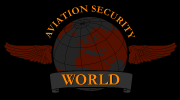Boeing plays a recurring role in U.S. diplomacy
A package of incentives aimed at persuading Iran to curb its nuclear program reportedly includes spare parts from Chicago-based Boeing Co. It's nothing trivial for Iran.
Its aging fleet of civilian and military aircraft has suffered several deadly crashes in recent years, a miserable safety record Iranian officials blame on U.S. trade sanctions that prevent the country from buying spare aircraft parts to do basic maintenance. Boeing has been barred from inspecting Iran's aircraft inventory, which includes 747 jumbo jets.
For Boeing, the potential sales to Iran have high symbolic value but offer little in the way of business promise. The U.S. isn't expected to lift trade sanctions to allow sales of new planes to Iran. But Boeing is a willing to be a bargaining chip in the diplomatic efforts to resolve a nuclear standoff with Iran.
"They want to be a team player with the U.S. government," said Richard Aboulafia, an aerospace consultant at the Teal Group in Virginia. "After all, the U.S. has been known to extend its influence to help Boeing."
Defense and aerospace companies like Boeing and Lockheed Martin Corp. long have been standard pieces of the U.S. diplomatic tool kit. Diplomacy almost always involves opening up sales of technologies or goods that the U.S. has in abundance.
Boeing jets were key to the opening of relations with China in the 1970s under President Nixon after years of isolation from the Communist regime there. Since then, China has become one of the company's biggest buyers as its travel market explodes.
As Boeing expanded its defense business in the 1990s, its clout in U.S. foreign policy has grown. It has sold F/A-18 Hornet fighter jets to Kuwait, Apache attack helicopters to Israel and airborne warning and control systems to Saudi Arabia.
"Defense sales are a common way of cementing ties between allies," said Michael Levi, a fellow on science and technology at the Council on Foreign Relations. "It also creates the possibility of joint operations if you have compatible equipment."
The gesture toward Iran, though, has nothing to do with solidifying a wonderful relationship. The U.S. government placed sanctions against Iran in 1979 after Iranians mobbed the U.S. Embassy in Tehran and took 90 hostages. As a result, U.S. companies have been prevented from doing business there.
The U.S. has worked to isolate the Tehran government, accusing Iran of sponsoring terrorism, seeking to build a nuclear arsenal and undermining the U.S.-sponsored Middle East peace process between Israel and its Arab neighbors.
Iran says the trade ban has undermined its aviation safety. The last new Boeing plane it purchased was in 1978. Since then it has bought used planes on the secondary market.
Iran operates four narrow-body 727s and six 747s, according to Boeing. It also operates 17 Airbus airplanes. The sanctions cover not only American-made planes and parts, but also European planes like Airbus when they use parts made in the U.S.
Chicago Tribune









0 Comments:
Post a Comment
<< Home